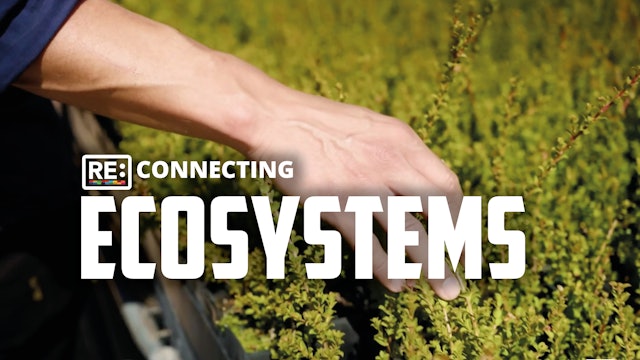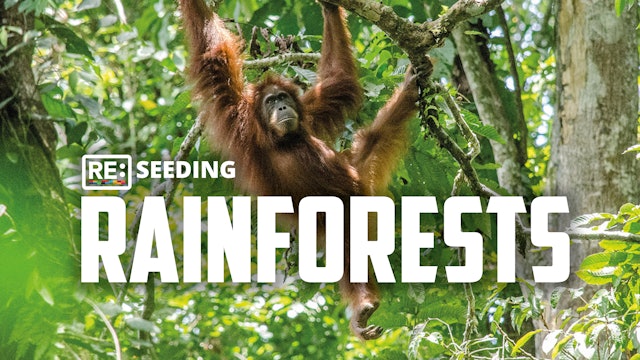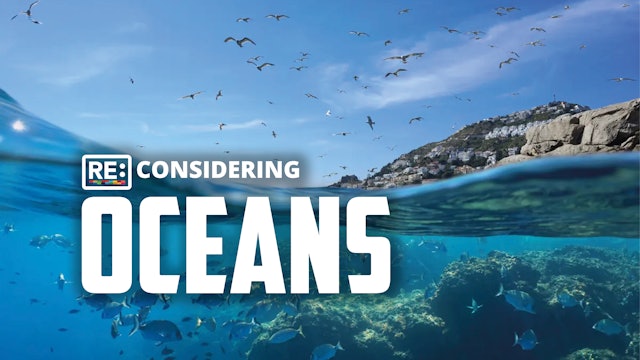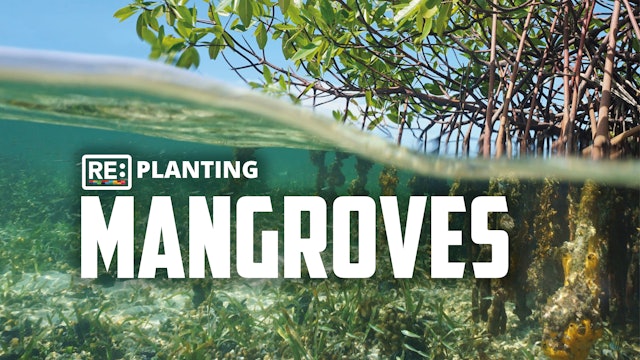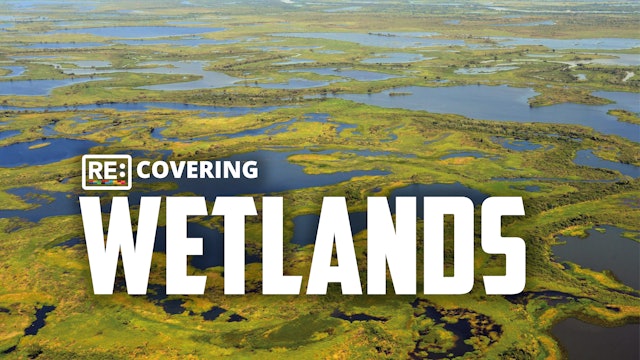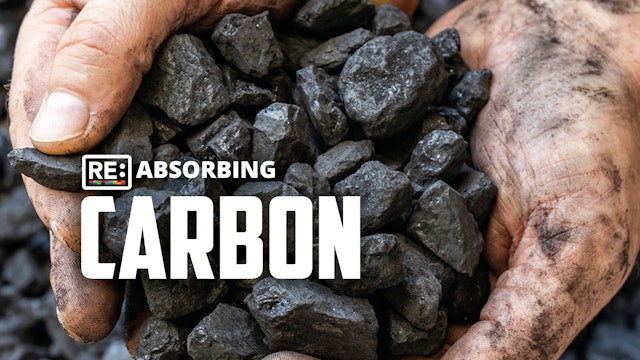RE:TV Reconnecting Globally
RE:TV series highlights some of the inspiring global innovations and ideas that are emerging in response to the climate and biodiversity crisis.
RE:TV was announced at the World Economic Forum at Davos in January 2020 by His Majesty King Charles III (then HRH The Prince of Wales) alongside the Sustainable Markets Initiative. Both are inspired by his long-standing commitment to environmental issues.
-
Reconsidering Agriculture
With an estimated 25% of greenhouse gas emissions coming from our food system, rethinking our approach to agriculture is essential if we are to create a sustainable future. By working in harmony with nature, regenerative agriculture can provide more nutritious food at the same time as reducing em...
-
Restoring Oceans
Marine ecosystems are under threat all over the world. In Belize, the invasive red lionfish has disrupted marine food webs over the last two decades, damaging coral reefs and reducing the productivity of local fisheries. Working with local communities, Blue Ventures have developed a strategy to ...
-
Reconsidering Ecosystems
"A key concept in ecology is that no single species exists on its own. Everything depends on other species to survive, and that includes humans.”
Thomas Crowther is professor of ecology in the Department of Environmental Systems Science at ETH Zurich where he founded the Crowther Lab. He is also ... -
Reconnecting Ecosystems
Despite making up only around 5% of the world’s population, indigenous people protect an estimated 80% of the planet’s remaining biodiversity.
The Ngarrindjeri have lived near Lake Albert in Coorong National Park in South Australia for generations, but the area’s unique wetlands ecosystem is unde... -
Refuelling Aviation
Using bacteria to create Sustainable Aviation Fuel from captured carbon
With 2.5% of global CO2 emissions generated by the aviation sector and 100 million gallons of jet fuel used each year by commercial airlines, decarbonising aviation fuel is essential if we are to achieve a Net Zero future.
Ba... -
Researching Biodiversity
The Millennium Seed Bank is an underground collection of over 2.4 billion seeds from around the world stored in sub-zero chambers in Wakehurst, Sussex. Part of Kew's Royal Botanic Gardens, it not only protects biodiversity by preserving threatened species, but also conducts cutting-edge scientifi...
-
Reintroducing Buffalo
Kainai knowledge-keeper Leroy Little Bear explains the importance of reintroducing buffalo in their traditional heartlands, where they hold a central place both in the local ecosystem and the culture of indigenous people.
The buffalo is a "keystone species": an eco-engineer which regenerates the...
-
Reseeding Rainforests
Brazil's Xingu Park is the oldest indigenous territory in Brazil. Its 2.6 million hectares provide a home to 16 different tribes. The Rede de Sementes do Xingu brings together over 500 indigenous seed-collectors to gather and disperse native seeds, preserving the Amazon's essential biodiversity w...
-
Reconsidering Oceans
The ocean plays a vital role in regulating planetary health. It keeps temperatures down by absorbing heat and mitigates the effect of greenhouse gas emissions by soaking up carbon dioxide. But this comes at a cost. As ocean temperatures increase, we are seeing a rise in ocean acidification and a ...
-
Remapping Restoration
A collaboration between the Crowther Lab, ETH Zurich and Google, Restor is a mapping platform for the fast-growing global restoration movement.
Traditionally, detailed scientific data and resources have been difficult or expensive to access, with information spread across a mix of outlets and p...
-
Replanting Mangroves
Mangroves are one of the most effective natural carbon sinks on earth, storing up to four times more carbon per hectare than rainforests. They are also rich in biodiversity and mitigate some of the most catastrophic local effects of climate change; particularly flooding and coastal erosion. Despi...
-
Recovering Wetlands
As well as being among the most biodiverse ecosystems on earth, healthy wetlands protect us from flooding, help clean water of pollutants, and sequester significant amounts of carbon. But these unique ecosystems are under threat across the world – over the past 300 years, a staggering 87% of the ...
-
Replenishing the Soil
In the last few decades, farmers around the world have grown dependent on synthetic fertilizers, which in the short term can have a huge impact on the productivity of land, but over a longer period of time deplete soils of natural microorganisms and nutrients, leach nitrogen into waterways, are c...
-
Resurfacing Heat
Geothermal technology with a key part to play in the clean energy transition. With global demand for energy expected to increase by 50% by 2050, it is essential we find a range of energy sources to replace fossil fuels and support the transition to a clean energy future.
Eavor’s revolutionary ...
-
Reviving Urban Spaces
The growth of cities around the world is often seen as a significant threat to biodiversity through habitat loss, pollution and rising temperatures. The urban restoration movement is looking to change our experience of cities by reintroducing green spaces to our cities, encouraging wild flowers, ...
-
Reactivating Chemicals
New Iridium is the Carbon-negative chemical manufacturing inspired by photosynthesis.
The chemicals industry generates trillions of dollars of revenue globally, producing a wide range of products from packaging and paint to food and pharmaceuticals. However, many of the manufacturing processes i...
-
Reabsorbing Carbon
ReTV looks aft accelerating carbon capture from natural chemical weathering. With more than 2 trillion tonnes of excess carbon dioxide in the atmosphere today, we need to accelerate efforts to capture existing #CO2 as well as reduce our emissions.
The oceans are one of the largest carbon sinks on... -
Resilient Wind Power
Zephyr Power's wind turbines near Karachi provide much-needed renewable energy in Pakistan at the same time as restoring local mangroves; a Nature Based Solution that helps reduce the devastating impact of floods in the Indus delta and draw down CO2 from the atmosphere.
Kumayl Khaleeli, CEO of Ze... -
Reconsidering Design
Janine Benyus is an innovative biologist whose work has popularised the concept of Biomimicry, which she describes as “innovation inspired by nature”. Through conferences, appearances in documentaries, consultancy work and the Biomimicry Institute she co-founded, she has popularised the idea that...
-
Redesigning Renewables
Nature has evolved over millennia, with every species alive today the product of generations of adaptation and refinement. Janine Benyus of the Biomimicry Institute sets out how the guiding principle of biomimicry is to learn from this vast resource of natural research and development, seeking in...






